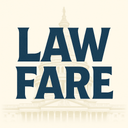In a stunning turn of events, a New York appeals court on August 21, 2025, threw out a nearly $500 million civil fraud penalty imposed on President Donald Trump, deeming it unconstitutional under the Eighth Amendment.
This ruling marks a significant win for Trump in the long-running New York civil fraud case, though it upholds the underlying finding of liability for fraudulent practices. The decision relieves Trump of a massive financial burden that had loomed over his business empire and presidency, while highlighting ongoing debates about the limits of state enforcement actions against high-profile figures.
Background of the New York Civil Fraud Case
The case originated in September 2022 when New York Attorney General Letitia James filed a civil lawsuit against Trump, his adult sons Donald Jr. and Eric, the Trump Organization, and several executives. James accused them of engaging in a decade-long scheme to inflate asset values on financial statements to secure favorable loans, insurance rates, and tax benefits.
Prosecutors alleged that Trump exaggerated his net worth by as much as $3.6 billion in some years, overvaluing properties like Mar-a-Lago and Trump Tower to deceive banks such as Deutsche Bank and insurers.
James brought the suit under New York's Executive Law 63(12), which empowers the AG to address persistent fraud without needing to prove intent to defraud or actual harm to victims. Trump and his allies repeatedly denounced the case as a "political witch hunt," pointing to James's campaign promises to investigate him as evidence of bias.
The trial, which lacked a jury at Trump's request, unfolded over 11 weeks in late 2023 and early 2024, featuring testimony from Trump himself and key witnesses.
The Original Trial and Judgment
In February 2024, Manhattan Supreme Court Judge Arthur Engoron delivered a scathing 92-page ruling, finding Trump and his co-defendants liable for fraud, conspiracy, and falsifying business records.
Engoron described the defendants' actions as a "persistent and repeated fraud" that showed a "complete lack of contrition and remorse." He ordered disgorgement of ill-gotten gains totaling $354 million, which ballooned to over $500 million with prejudgment interest. Additional remedies included a three-year ban on Trump serving as an officer or director of any New York corporation, a five-year ban for his sons, and the appointment of an independent monitor to oversee the Trump Organization.
Trump was also barred from borrowing from New York-chartered banks for three years.
Trump immediately appealed, and in March 2024, the appeals court reduced the bond required to stay enforcement during the appeal from the full amount to $175 million, allowing him to avoid immediate asset seizures.
The Appeal Process and Key Arguments
Oral arguments in the appeal were heard in September 2024 before a five-judge panel of New York's Appellate Division, First Department. Trump's legal team argued that the case was time-barred, lacked evidence of harm (noting that lenders were repaid with interest), and violated due process.
Central to their case was the claim that the massive penalty constituted an "excessive fine" prohibited by the Eighth Amendment to the U.S. Constitution, which states: "Excessive bail shall not be required, nor excessive fines imposed, nor cruel and unusual punishments inflicted."
They contended that the fine was grossly disproportionate to any alleged misconduct, especially since no direct victims suffered losses. The AG's office countered that the penalty was justified as disgorgement of profits from fraudulent loans, not a punitive fine, and that the law aimed to protect the integrity of New York's financial markets.
Why the Court Threw Out the Fine: The Eighth Amendment Analysis
In its 322-page decision released on August 21, 2025, the appeals court upheld Engoron's liability findings, affirming that Trump and his associates had committed fraud through falsified statements.
However, in a 3-2 split on the penalty, the majority ruled that the $500 million disgorgement order was indeed an excessive fine under the Eighth Amendment.
The court reasoned that the amount was "vastly disproportionate" to the harm caused, as banks and insurers were not defrauded out of money—they profited from the deals. Justices emphasized that civil penalties must be tethered to actual damages or societal harm, not used as unchecked punishment.
Two judges concurred but advocated for a retrial due to perceived errors in Engoron's handling, such as admitting certain evidence. Justice David Friedman issued a separate opinion calling for outright dismissal, accusing James of political motivations that undermined the case's legitimacy.
The injunctive relief, however, was deemed "well-crafted" to prevent future fraud without being overly burdensome.
Reactions and Broader Implications
Trump hailed the ruling as a "complete and total victory," posting on Truth Social that it exposed the case as election interference.
His $175 million bond will be returned once appeals conclude. AG James vowed to appeal to the New York Court of Appeals, insisting the liability ruling vindicates her office's efforts.
Legal experts, like former prosecutor Jessica Roth, noted it's not a "total win" for Trump, as the fraud stigma remains, but a rebuke to aggressive penalties in civil cases.
The decision underscores tensions between state oversight and constitutional protections, potentially influencing how AGs pursue corporate fraud. Amid Trump's presidency, it also fuels discussions about politicized prosecutions, with his Justice Department now investigating James for alleged misconduct.
As the case heads to New York's highest court, it remains a flashpoint in the intersection of law, business, and politics.










Share:
Trump’s Plan to Paint the Southern Border Wall Black and Bolster Security
Protests Erupt Across England as Flag Controversy Ignites National Fury